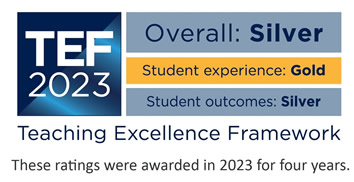BA (Hons) Early Childhood Studies Top Up
About This Course

The programme is recognised by the Department for Education as full and relevant for early years practice.
BA (Hons) Early Childhood Studies (Top-up) is designed to provide a comprehensive course that helps students to critically analyse various aspects of children’s life such as sociological factors, legislative changes and educational influences on children’s development, focusing on the age between 0-8 years old. Within this course, students will have opportunities to be able to evaluate their everyday practice and implement changes confidently. To be able to do this, this course incorporates professional practice hours (200 hours) which is one of the distinctive features of this programme. Within these professional practice hours, students will be given opportunities to apply theories into practice at their professional practice and expand their theoretical and practice knowledge. This programme also invites students to conduct Action Research. This exercise will help students to be implement change in practice, be academically inquisitive, independent and confident in their chosen area. Additionally, there will be opportunities to explore students’ future career within the field of early years in ‘Leadership and Management in Early Childhood Profession’ module by investigating different possible career pathways with this degree and developing various leadership, management and changing-agent skills to help students achieve their future career goals. Special Educational Needs and Disability is a module of study that provides students with the opportunity to understand the challenges with underpinning legislation and policy frameworks.
Course Person Specification Full Course SpecificationApplicants wishing to gain direct entry onto the top-up at level 6 must have at least 240 CATS (Credit Accumulation and Transfer Scheme) points gained through study at levels 4 and 5 in a field of early childhood. The average grade at level 5 must be 50% or above. Students must also have an up-to-date DBS and a letter/email confirming their placement, which will be recorded prior to enrolment.
Students must have L2 English and Maths qualifications at grade 4 or above, or hold a formally recognised equivalent.
At the beginning of the programme, students will be advised that if they wish to become an Early Years Educator, or QTS primary school teacher, they are required to have GCSE English, Maths and Science grades C or 4. For students wishing to become an Early Years Teacher, they need to have GCSE English and Maths grades C or 4.
All modules are mandatory:
- Children’s Rights, Parents Rights and Safeguarding
- Children’s Learning, Voice and Pedagogy
- Special Educational Needs and Disability
- Leadership and Management in Early Childhood Profession
- Action Research Project
Students will be required to complete 200 placement hours within an early years settings.
Children’s Learning, Voice and Pedagogy and Children’s Rights and Safeguarding are based on Human Growth and Development and Safeguarding Children modules at Foundation degree level with added Level 6 resources and materials. These two modules are imperative for those students who studied other degrees such as Learning Support and Health and Social Care, as it will give them the key skills needed to progress. Furthermore, as these two modules focus on children’s learning, systems of early years education and safeguarding procedures, those students who studied other child-related degrees will be able to gain practical knowledge and understanding of early years settings and will be able to have a richer experience in their professional practice. Furthermore, these modules serve to renew basic knowledge and understanding of children’s learning and safeguarding issues for students who studied FD Early Childhood Studies. These modules will explore the importance of everyday professional practice, especially when students are working with children. The students will be able to critically reflect on their everyday practice and policy implementations in order for them to improve their practice for children’s learning and safeguarding.
Students will also study Special Educational Needs and Disability. This module aims to equip students with not only the knowledge and understanding of legislation and policies, but the challenges faced by children with SEND and their families that are exacerbated by societal and political misunderstanding. By gaining better understanding of circumstances and social issues surrounding SEND and its support, students will be able to provide better, flexible and adaptable support unique to each child and family.
Action Research module is a long thin module in which students choose a topic and carry out a piece of independent research. Each student will have a supervisor to support their research project. The Action Research module will focus on issues that need to be improved within their chosen professional field. The module is crucial for students’ future careers as, in the field of early childhood, practitioners will be expected to improve their practice continuously according to government policy and legislation.
The programme aims to foster a strong partnership with local sectors related to early childhood education and care providers in order for students to complete 200 placement hours. There are regular placement visits by the Programme Leaders to support students’ progress in their chosen profession. The students benefit from a collaborative, subject specific learning space that enhances the development of their practical skills and academic knowledge required to be competent and confident professionals in the field of Early Childhood.
Students can continue to postgraduate study at Grimsby with an MA in Education or teaching in the post compulsory sector at Grimsby. Additionally, graduates will be able to study post graduate courses or MAs in various social science courses at other institutions. Furthermore, graduates with two to three years’ experience of working with children with SEND have the opportunity to enrol in post graduate courses for speech and language therapies.
Graduates can gain entry into employment in:
• Schools,
• Family Hubs/Children’s Centres,
• Family support service,
• Nursery
• Pre-school setting
• Alternative Provision
• NHS
• Social Work








